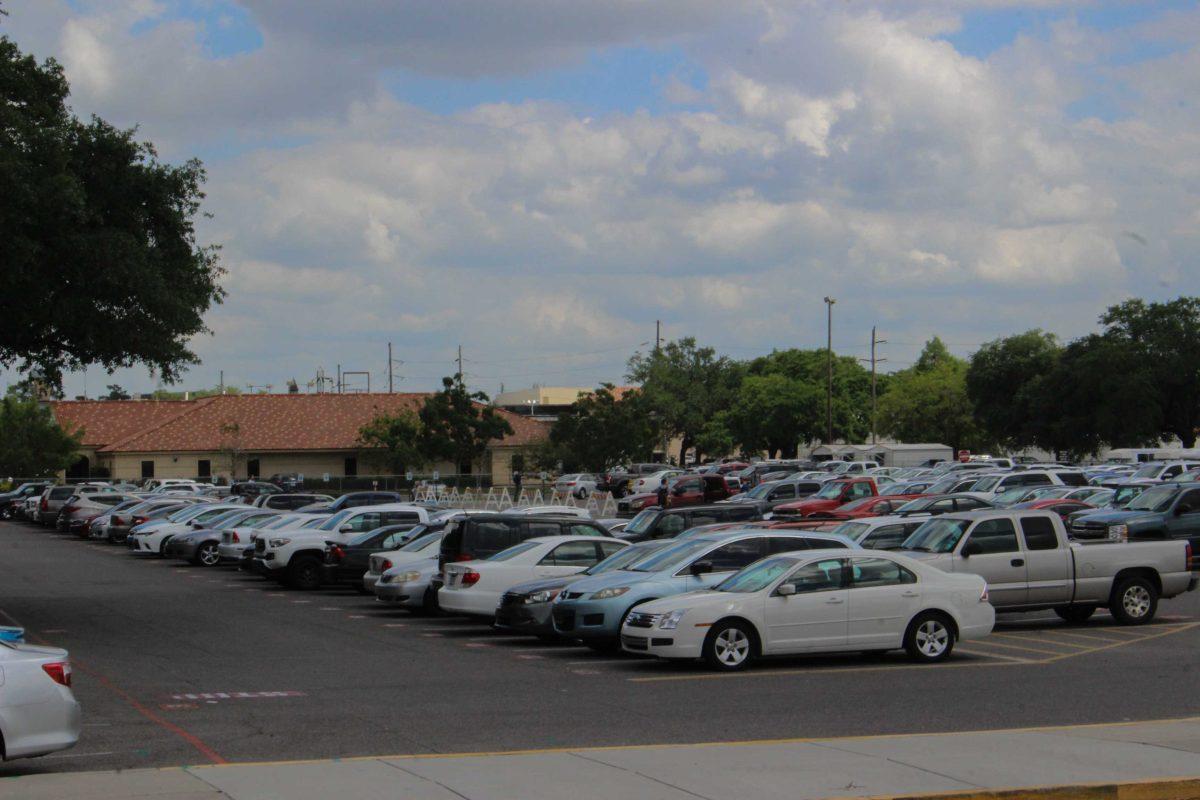Kinesiology senior Emily Passman was perplexed when she received an email informing her that the parking lot of the Parker Agricultural Coliseum that sits at the corner of Highland Road and South Stadium Drive would be switching designations from commuter parking to residential parking.
Passman was even more confused to find that none of her friends or classmates received the same notice of the lot’s change in status on Aug. 11, just over a week before the fall semester began.
“I know a lot of people who weren’t [told about it],” she said.
The 600-space lot commonly referred to as the Ag Lot, offered close parking to the LSU Student Union and the Quad, where the majority of classes take place.
The email informing students about the change to the Ag Lot was intended to be sent to all commuters who purchased a parking pass for the fall semester. The high influx of first–time permit purchases after a year away from campus during the COVID-19 pandemic could be to blame for the miscommunication, said Ernie Ballard, LSU spokesman.
“We know [we] could have done a better job communicating changes and will do better in the future,” Ballard said.
Currently, there are 8,200 commuter spaces across campus, down from 2019-2020 when there were 9,184 commuter spaces.
LSU sold 12,381 commuter permits for the fall semester. Ballard noted that not all commuters are on campus at the same time, so the disparity in spaces compared to passes is acceptable.
Construction of the 900-bed Greenhouse District residential life facilities, consisting of Azalea and Camellia Halls, was what prompted the decision to change the Ag Lot to a residential zone, Ballard said.
Despite losing 600 spaces from the Ag Lot, the university launched a new program called Park & Geaux as an alternative for commuter parking.
A Park & Geaux pass that costs $50 gives commuters access to off-campus lots along Skip Bertman Drive with a shuttle departing every 10 minutes to campus. The Park & Geaux program adds 1,100 spaces back to the pool of commuter parking, Ballard said.
“The issue is not that we have a capacity problem, but rather there are a limited number of parking spaces in close proximity to campus,” said Josh Galasso, the LSU transportation demand manager.
Galasso said having the largest freshman class in university history and a sophomore class that largely wasn’t on campus due to the pandemic last semester is what’s made parking a challenge.
“We are essentially educating two groups of students on campus parking and making all of them aware that parking spaces in close proximity to campus are at a premium,” he said.
History sophomore Jonah Brock wasn’t notified about the change to the Ag Lot via the email that Parking and Transportation Services sent out. He found out from secondhand sources talking about their experiences with the parking situation on campus.
“I would have preferred to know, especially because it affects everyone else’s parking,” Brock said. “It affects entire commuter zones that get backed up because of it too.”
Unlike Brock and Passman’s friends who were told about the change, microbiology junior Louis Giacona had no clue the lot he parked in for the entirety of last year was changing to a residential lot. He parked in the lot for the entire first week of classes.
“I was pretty shocked when I heard because it’s the main commuting lot for everyone that commutes to school because every other lot is just a ridiculously far distance from the quad,” Giacona said. “It doesn’t make sense why they wouldn’t keep it a commuter’s lot.”
Some commuters feel prioritizing residential parking by giving on-campus students an additional 600 new parking spaces at the heart of campus is unfair to those who pay the same $182 for a year-long parking pass and have to come to campus every day from home.
Brock feels that paying the same price for a parking pass should provide similar or equal access to parking on campus, a sentiment shared by other commuters.
“Even with us paying the same amount [for a parking pass], it’s stupid to prioritize [resident’s] parking because there’s no rush for them to find a spot and get to class,” Passman said. “We always have to find a spot and walk to class. They just roll out of bed and go.”
Brock said he has to leave his house in Prairieville about an hour and a half before his class if he wants to get a spot near Tiger Stadium.
“Trying to circle around both [the West and East stadium lots] takes about 20 to 30 minutes to find an open spot,” Brock said.
Passman has found some of the only places she can find a spot in are all-purpose lots that allow access to all university permits. The one she found herself using most often is the lot near the track and field facility on Nicholson Drive near the West Gate of campus.
“It’s pretty far from where I work, which is where I end up at the end of the day,” she said. “But at least there’s a spot.”






